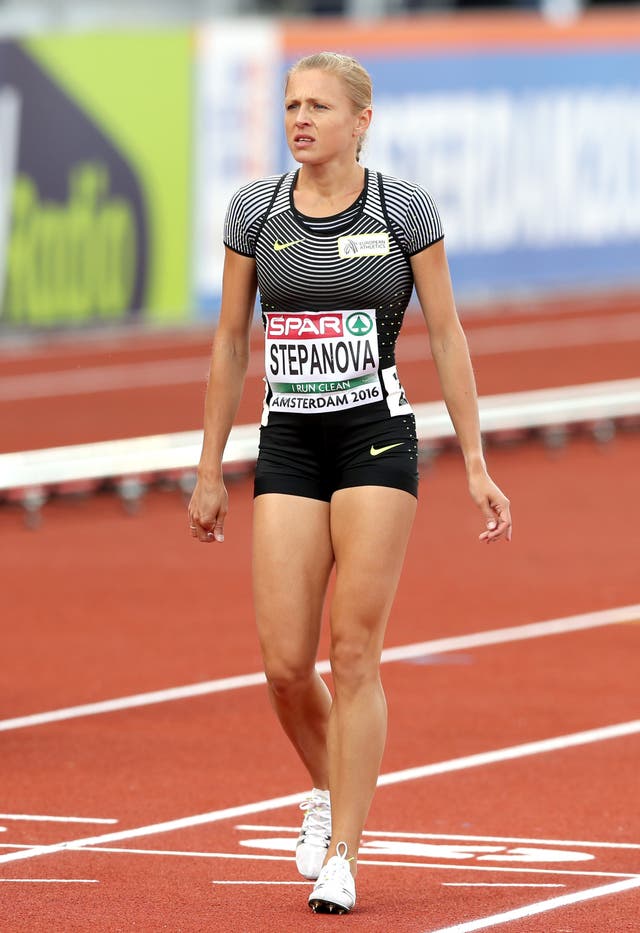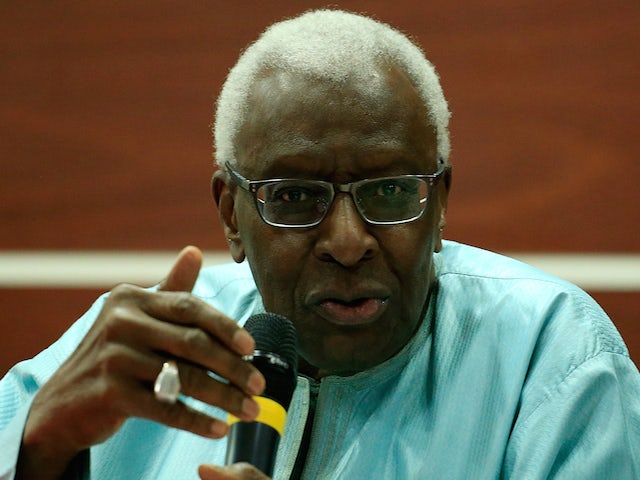Lamine Diack, the former head of world athletics, has been sentenced to four years in prison, two of them suspended, by a French court for his part in a corruption scandal.
A statement from the French ministry of justice confirmed the sentence for the 87-year-old from Senegal, who had been charged with directly or indirectly soliciting 3.45 million euros (£3.15m) in bribes from athletes, many of them Russian, to cover up positive drug tests.
It was reported that presiding judge Rose-Marie Hunault told Diack that due to his age it was not expected he would serve a custodial sentence, but instead be granted conditional release.
In addition to the prison sentence, Diack was fined 500,000 euros (over £450,000). He served as the head of athletics’ global federation, known at the time as the IAAF, between 1999 and 2015.
Diack senior had been under house arrest in France since November 2015.
Allegations of a conspiracy to cover up positive drugs tests in Russia first came to light when Yuliya Stepanova and her husband spoke out in March 2013.
Eleven months later Andrei Baranov, the agent of Russian marathon runner Lilya Shobukhova, told the race director of world athletics’ governing body, then known as the IAAF, she had been asked to pay 450,000 euros over a two-year period to stay off a doping watch list in order to compete at the 2012 Olympic Games in London.

Diack stood down as IAAF president in August 2015, with Lord Coe succeeding him in the top job.
In January 2016 the World Anti-Doping Agency found Diack “organised and enabled” the Russian doping scandal within the IAAF. The IAAF issued life bans from the sport to his son Papa Massata Diack, the former president of the Russian athletics federation Valentin Balakhnichev and the former head of its long-distance running programme Alexei Melnikov.
Diack Jr was sentenced to five years in prison but remains in Senegal, with the authorities in the West African country having refused to extradite him to France. Former IAAF lawyer Habib Cisse received a three-year sentence with a further two years suspended while the organisation’s former anti-doping chief Gabriel Dolle was handed a two-year suspended sentence.
Balakhnichev and Melnikov were sentenced in their absence to three and two years respectively. Both remain the subject of international arrest warrants.
World Athletics statement on today's Paris Criminal Court ruling. — World Athletics (@WorldAthletics) September 16, 2020
A press statement from the ministry concluded: “This conviction is the first rendered by the French courts for acts of corruption committed within an international sports governing body.
“The judgement rendered by the 32nd chamber of the Criminal Court is not yet final, however, as the convicted persons have the power to exercise legal remedies against them.”
World Athletics – the IAAF’s current guise – welcomed the ruling, which was accompanied by sizeable damages.
A statement said: “This has been a long five years and we would like to thank the French Prosecutors and the Paris Criminal Court for their time, detailed work and deliberations in to this case.
“Whilst we are disappointed this happened in our sport, we are grateful for the strong and clear decisions that have been taken against the individuals involved and charged with these crimes, and we would like to reassure everyone that the reforms our congress approved in 2016 will ensure that similar actions by individuals can never happen again in our sport.
“We are grateful for the damages awarded by the Paris Criminal Court totalling €16 million for embezzled funds and for reputational damage suffered as a direct consequence of these crimes and the resulting media coverage. As the court acknowledged, this damage has impacted World Athletics’ finances and had a negative impact on World Athletics’ image and reputation in a deep and lasting way.
“We will do everything we can to recover the monies awarded, and return them to the organisation for the development of athletics globally.”
The World Anti-Doping Agency described the court’s decision as “a victory for clean sport”.
WADA president Witold Banka said: “This is a victory for athletes and for clean sport. It shows that no one is above the law.
“It is particularly encouraging when sports-related corruption is being taken seriously by criminal justice systems around the world, and the French authorities are to be congratulated for their diligence and commitment.”







